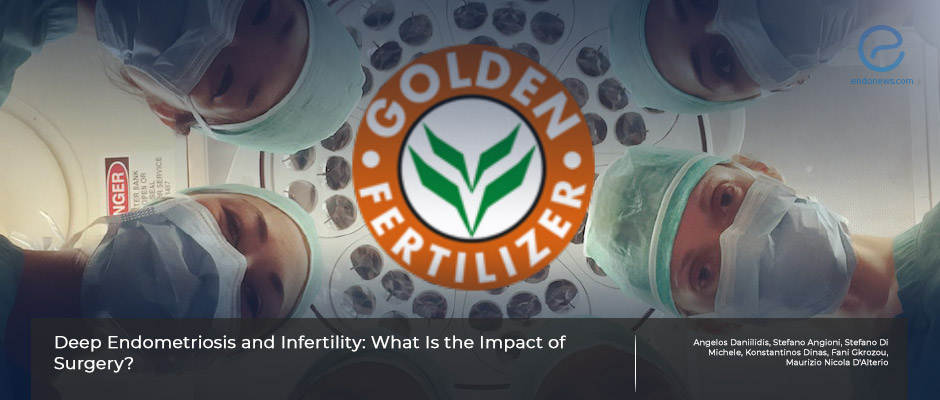Does taking all deep endo nodules out improve fertility?
Jan 30, 2023
Surgery for endometriosis improves fertility, according to the combination of studies from the literature
Key Points
Highlights:
- Fertility improves after deep infiltrative endometriosis (DIE) surgery but what excision is more critical or which type of nodule has more influence on fertility is still controversial.
Importance:
- The study highlights the importance of surgery on endometriosis-related fertility.
What's done here:
- This is a database search of all published studies, limited to English, on the effect of surgery for deep endometriosis on fertility from January 2010 to June 2022.
- PubMed, MEDLINE, Embase, Web of Science, and the Cochrane Library have been checked.
- Only studies including pregnancy rates after deep endometriosis surgery have been added.
Key Results:
- Out of 392 studies, 23 were eligible, with overall 1548 women (845 had documented infertility before surgery, and wished to become pregnant).
- A total of 814 women became pregnant, with a mean pregnancy rate of 52.6%.
- In the sub-analysis for actual fertility rate, 337 out of 635 achieved pregnancy (53%) of whom 144 (42.7%) were spontaneous and 193 (57.3%) were obtained via assisted reproduction.
- The number of cases has not allowed the stratification of the results for the type of surgery or localization of the deep nodule.
Limitations:
- The review questioned the big unknown hole for deep infiltrating outcomes on infertile patients but as all numbers from studies are heterogenous and types of surgeries applied are not truly matching it is still debatable to conclude for pros and cons.
Lay Summary
Deep infiltrative endometriosis is an issue that comes to the scene more than before according to detection rates with help of awareness on clinicians. But treating infertility related to endometriosis is still unclear when it comes to DIE patients. In the review by Angelos Daniilidis et al, the authors searched the literature for studies analyzing fertility rates after DIE surgery. A database search of all published studies, limited to English, on the effect of surgery for deep endometriosis on fertility from January 2010 to June 2022 was done. PubMed, MEDLINE, Embase, Web of Science, and the Cochrane Library have been checked. Only studies including pregnancy rates after DIE surgery have been added. Out of 392 studies, 23 remained after excluding studies for duplications, screening only prospective and retrospective cohort, case-control, and observational studies. When all studies were gathered 1548 women were identified for analysis, 845 have documented infertility before surgery and wished to become pregnant but hadn’t had an infertility diagnosis. In the entire group of 1548, 814 women became pregnant, with a mean pregnancy rate of 52.6%. In the sub-analysis for actual fertility rate (infertile patients to get pregnant after surgery) 337 out of 635 achieved pregnancy (53%) of whom 144 (42.7%) were spontaneous and 193 (57.3%) were obtained via assisted reproduction. But the number of cases has not allowed the stratification of the results for the type of surgery or localization of the deep nodule. While the study tells a lot about the benefits of surgery on fertility rates there is still a need for randomized studies.
In women with deep endometriosis, the spontaneous fertility rate might range from 2 to 10%. The optimal management of these women is still an area of debate. Therefore, this review aims to explore the literature on the impact of deep endometriosis surgery on reproductive outcomes and pregnancy rates in women with and without prior infertility. A total of 392 articles were identified through database searching. Twenty-three studies were eligible to be included in the review. A total of 1548 women were identified, 814 of whom became pregnant, with a mean pregnancy rate of 52.6% (95% CI 49.7-63%). Our review suggests that surgery may improve fertility outcomes. Due to the variability in the studies, it is impossible to stratify fertility outcomes of surgery by the localization of deep endometriosis. More investigations are needed to determine whether surgical management should be first-intention or limited to the failure of medically assisted reproduction treatment.
Research Source: https://pubmed.ncbi.nlm.nih.gov/36431203/
DIE surgery fertilty

